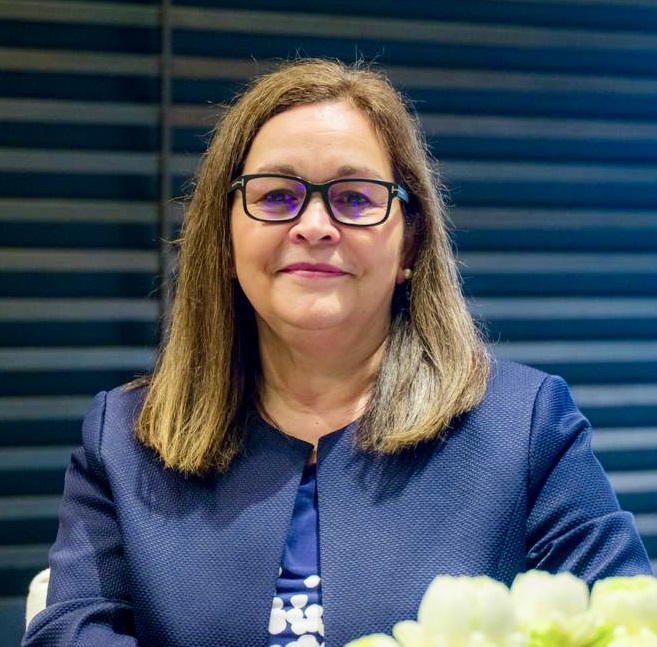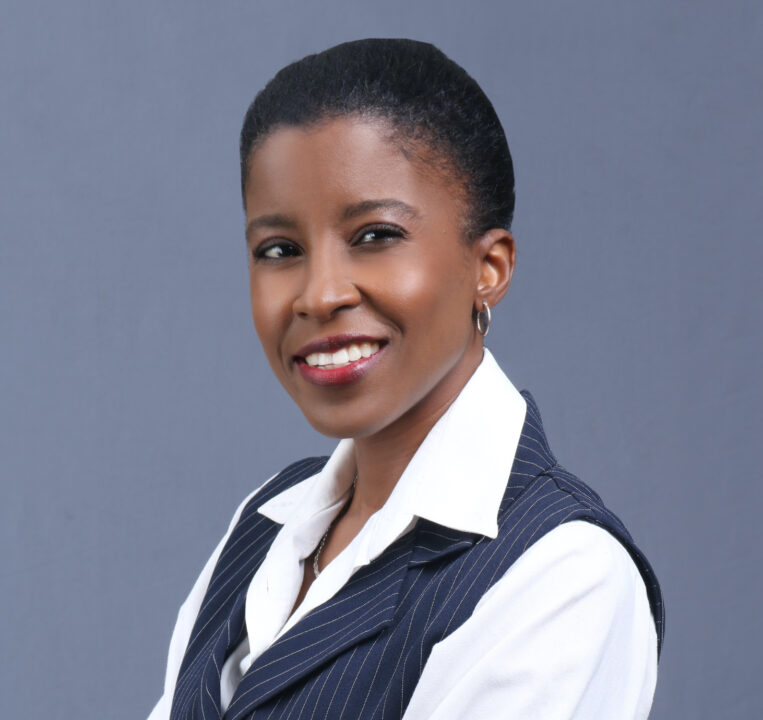IIC Caribbean Chapter meeting – Developing Caribbean Critical Internet Infrastructure
Chapter Meetings
Read this quarter’s Intermedia here

Date: Thursday 25 September 2025
Time: 10:00 – 11:30 AST / 15:00 – 16:30 BST
Venue: Virtual
Join us for the next IIC Caribbean Chapter meeting of 2025.
Synopsis:
As Small Island Developing States (SIDS) in the Caribbean increasingly depend on digital connectivity for economic resilience, public service delivery, disaster response, and innovation, the development of robust, sovereign, and sustainable Critical Internet Infrastructure (CII) is now essential.
This meeting will convene regional stakeholders—including policymakers, regulators, technical community leaders, academia, civil society, and international partners—to explore strategic pathways for developing and strengthening CII in the Caribbean context.
The discussion will focus on necessary aspects and key components of infrastructure to maintain critical communications, in the event of a disaster or significant service outage, but also, to be able to mitigate against deliberate malicious attacks.
This will include telecommunications service providers, subsea fibre, national backbones, data centres, IXPs & Routing infrastructure, DNS & root servers, overlay services such as DNSSEC, IPv6 etc. This will also include focus on the power grid and the involvement of the various emergency management entities.
Please note this meeting will not be held under Chatham House Rule
Please note this meeting will not be held under Chatham House Rule
Registration Fees for delegates
IIC Members – no charge
Non-Members – fee waived
**Please check eligibility to attend

The meeting report is now available.

Bill Woodcock is the secretary general of Packet Clearing House, the intergovernmental treaty organization that builds and supports critical Internet infrastructure, including Internet exchange points and the core of the domain name system. Since entering the Internet industry in 1985, Bill has helped establish hundreds of Internet exchange points.
In 1989, Bill developed the anycast routing technique that now protects the domain name system. In 1998 he was one of the principal drivers of California 17538.4, the world’s first anti-spam legislation. Bill was principal author of the Multicast DNS and Operator Requirements of Infrastructure Management Methods IETF drafts. In 2002 he co-founded INOC-DBA, the security-coordination hotline communications system that interconnected the network operations centers of more than three thousand ISPs around the world. And in 2007, Bill was one of the two international liaisons deployed by NSP-Sec to the Estonian CERT during the Russian cyber-attack.
In 2011, Bill authored the first survey of Internet interconnection agreements, as input to the OECD’s analysis of the Internet economy, and conducted follow-on surveys in 2016 and 2021, with participation from more than 27,000 Internet service providers in 192 countries. Bill served on the Global Commission on the Stability of Cyberspace, and the Commission on Caribbean Communications Resilience. He chairs the board of the Quad9 Foundation, he’s on the board of directors of the M3AA Foundation, and was on the board of the American Registry for Internet Numbers for fifteen years.
Now, Bill’s work focuses principally on the security and economic stability of critical Internet infrastructure.

Mr. Samuels is an international consultant with an extensive body of work in areas of strategy. policy, process innovation and governance with focus on ICT4D, technology in education and privacy. He is also actively involved in defining telecommunications policy and regulation as well as Internet policy via the policy development process related to the Internet’s Domain Name System.
His professional engagements these days are in the areas of digital transformation of business operations with special focus on privacy and risk management. He has held several senior executive positions in private sector and academic environments. He serves and has served on several Boards and Committees related to manufacturing, education, library and information. He serves on boards of four private sector companies where he chairs the Compensation and Strategy Committees on two of them. He read for an undergraduate degree at The University of the West Indies and has advanced degrees and diplomas from Purdue, George Mason University and the Massachusetts Institute of Technology (MIT).

Gerry E George has been a Commissioner with the National Telecommunications Regulatory Commission (NTRC) of Saint Lucia for the past 6 years.
He is an ICT Consultant and had been providing technical solutions to businesses in the ICT space for over 20 years. Mr George’s background is in technology and economics. He is an active member of the Saint Lucia ICT Association (SLICTA) and the Caribbean Network Operators Group (CaribNOG) and his advice is frequently sought after by fellow colleagues on technical matters. Mr George was a part-time lecturer for the University of the West Indies Management Information Systems program for more than 7 years.
An avid supporter of Open Source software and technologies, Mr George also takes an active role in Caribbean development and social issues and is always interested in exploring ways in which technology can be applied to improving the way of life in the Caribbean region.

Lynn Robinson became Director General of the International Institute of Communications (IIC), in March 2020.
Lynn is an experienced senior director and trustee / non exec-director, having held key senior leadership positions in the technology, built environment, regulation, accreditation and dental industries. She has extensive experience of professional membership bodies working within the full spectrum including, Regulatory bodies, Industry associations and Chambers of Commerce. Lynn is a well-known and established ambassador in these areas having led on many strategic programmes to aid engagement, growth, retention, change management, stakeholder and political engagement.

An experienced Consultant, Manager, Regulator, Engineer and Author, Michele Marius has 20 years of experience in the ICT and telecommunications space. She has worked in both the private and public sectors, and in developed and developing countries in the Caribbean, Southeast Asia and the South Pacific.
Currently, Michele is the Director of ICT Pulse Consulting Limited, a research and advisory firm that specialises in a broad range of ICT and telecommunications issues and is based in Jamaica. She is also the Founder of Project Calls (www.projectcalls.com), an online platform that collates tender opportunities from across the Caribbean region.
Finally, Michele is the Publisher, Editor and Primary Contributor of ICT Pulse (www.ict-pulse.com), a well-respected and longstanding online publication that discusses topical telecommunications and ICT issues from a Caribbean perspective, which has a wide readership across the region and internationally. She also hosts the ICT Pulse Podcast, through which to deep dive into important ICT/technology issues occurring in the Caribbean, thus enriching the conversation we, in the region, could be having.

Tracy Hackshaw is a highly experienced Senior Digital Economy Strategist with over 25 years of experience in digital implementation and leadership across the private and public sectors, spanning local, regional, and international contexts. He currently serves as the Head of the .POST Business Management Unit, Postal Technology Centre at the 150 year old Universal Postal Union (UPU), a United Nations system agency in Bern, Switzerland; a role he has held since September 2021.
In his current role at the UPU, Tracy leads and manages all activities related to the .POST Top Level Domain (TLD) and the emerging Cyber Resilience services portfolio.
This includes strategic planning, technical and legal oversight, marketing, business development, policy, and compliance. A key focus is positioning . POST as the premier secure and trusted digital platform for the global postal and logistics sector. One of his first projects involved the launch of CYBERTRACK.POST, a fully automated, web-based dashboard for real-time monitoring of .POST domains’ technical compliance with cybersecurity policies. He is working on expanding its functionality to improve overall Cyber Resilience, including integrating DNS abuse/security threat reporting.
At present, he is leading the implementation of SECURE.POST, an online portal for cybersecurity awareness and training, and the Postal and Logistics Sector Information Sharing and Analysis Centre (POST-ISAC), which focuses on improving the cybersecurity posture of the postal and logistics services’ value-chain through collaboration, information sharing and capacity building.

Wynn Alexander is a seasoned technology leader and strategic innovator serving as Senior Manager of Information Systems at LUCELEC. With a career marked by forward-thinking digital transformation and operational excellence, Wynn has played a pivotal role in shaping LUCELEC’s technological landscape and customer experience strategy.
Beyond infrastructure, Wynn has been instrumental in fostering a culture of innovation. He co-authored LUCELEC’s new innovation policy, which outlines a comprehensive framework for embedding creativity and technological foresight into every facet of the organization. This policy reflects his belief in inclusive innovation, intellectual property protection, and continuous learning as drivers of competitive advantage.
Wynn’s strategic acumen also extends to organizational planning and performance management. He is a trusted collaborator, and his insights have helped to shape decisions on organizational redesign, customer experience, and strategic change management. Known for his reliability, clarity, and collaborative spirit, Wynn continues to lead with a focus on resilience, innovation, and service excellence.



We give innovators and regulators a forum in which to explore, debate and agree the best policies and regulatory frameworks for widest societal benefit.
Insight: Exchange: Influence
We give members a voice through conferences, symposiums and private meetings, as well as broad exposure of their differing viewpoints through articles, reports and interviews.
The new website will make it easier for you to gather fresh insights, exchange views with others and have a voice in the debate
Take a look Learn more about our updatesYou are seeing this because you are using a browser that is not supported. The International Institute of Communications website is built using modern technology and standards. We recommend upgrading your browser with one of the following to properly view our website:
Windows MacPlease note that this is not an exhaustive list of browsers. We also do not intend to recommend a particular manufacturer's browser over another's; only to suggest upgrading to a browser version that is compliant with current standards to give you the best and most secure browsing experience.